Citibank 2012 Annual Report Download - page 248
Download and view the complete annual report
Please find page 248 of the 2012 Citibank annual report below. You can navigate through the pages in the report by either clicking on the pages listed below, or by using the keyword search tool below to find specific information within the annual report.-
 1
1 -
 2
2 -
 3
3 -
 4
4 -
 5
5 -
 6
6 -
 7
7 -
 8
8 -
 9
9 -
 10
10 -
 11
11 -
 12
12 -
 13
13 -
 14
14 -
 15
15 -
 16
16 -
 17
17 -
 18
18 -
 19
19 -
 20
20 -
 21
21 -
 22
22 -
 23
23 -
 24
24 -
 25
25 -
 26
26 -
 27
27 -
 28
28 -
 29
29 -
 30
30 -
 31
31 -
 32
32 -
 33
33 -
 34
34 -
 35
35 -
 36
36 -
 37
37 -
 38
38 -
 39
39 -
 40
40 -
 41
41 -
 42
42 -
 43
43 -
 44
44 -
 45
45 -
 46
46 -
 47
47 -
 48
48 -
 49
49 -
 50
50 -
 51
51 -
 52
52 -
 53
53 -
 54
54 -
 55
55 -
 56
56 -
 57
57 -
 58
58 -
 59
59 -
 60
60 -
 61
61 -
 62
62 -
 63
63 -
 64
64 -
 65
65 -
 66
66 -
 67
67 -
 68
68 -
 69
69 -
 70
70 -
 71
71 -
 72
72 -
 73
73 -
 74
74 -
 75
75 -
 76
76 -
 77
77 -
 78
78 -
 79
79 -
 80
80 -
 81
81 -
 82
82 -
 83
83 -
 84
84 -
 85
85 -
 86
86 -
 87
87 -
 88
88 -
 89
89 -
 90
90 -
 91
91 -
 92
92 -
 93
93 -
 94
94 -
 95
95 -
 96
96 -
 97
97 -
 98
98 -
 99
99 -
 100
100 -
 101
101 -
 102
102 -
 103
103 -
 104
104 -
 105
105 -
 106
106 -
 107
107 -
 108
108 -
 109
109 -
 110
110 -
 111
111 -
 112
112 -
 113
113 -
 114
114 -
 115
115 -
 116
116 -
 117
117 -
 118
118 -
 119
119 -
 120
120 -
 121
121 -
 122
122 -
 123
123 -
 124
124 -
 125
125 -
 126
126 -
 127
127 -
 128
128 -
 129
129 -
 130
130 -
 131
131 -
 132
132 -
 133
133 -
 134
134 -
 135
135 -
 136
136 -
 137
137 -
 138
138 -
 139
139 -
 140
140 -
 141
141 -
 142
142 -
 143
143 -
 144
144 -
 145
145 -
 146
146 -
 147
147 -
 148
148 -
 149
149 -
 150
150 -
 151
151 -
 152
152 -
 153
153 -
 154
154 -
 155
155 -
 156
156 -
 157
157 -
 158
158 -
 159
159 -
 160
160 -
 161
161 -
 162
162 -
 163
163 -
 164
164 -
 165
165 -
 166
166 -
 167
167 -
 168
168 -
 169
169 -
 170
170 -
 171
171 -
 172
172 -
 173
173 -
 174
174 -
 175
175 -
 176
176 -
 177
177 -
 178
178 -
 179
179 -
 180
180 -
 181
181 -
 182
182 -
 183
183 -
 184
184 -
 185
185 -
 186
186 -
 187
187 -
 188
188 -
 189
189 -
 190
190 -
 191
191 -
 192
192 -
 193
193 -
 194
194 -
 195
195 -
 196
196 -
 197
197 -
 198
198 -
 199
199 -
 200
200 -
 201
201 -
 202
202 -
 203
203 -
 204
204 -
 205
205 -
 206
206 -
 207
207 -
 208
208 -
 209
209 -
 210
210 -
 211
211 -
 212
212 -
 213
213 -
 214
214 -
 215
215 -
 216
216 -
 217
217 -
 218
218 -
 219
219 -
 220
220 -
 221
221 -
 222
222 -
 223
223 -
 224
224 -
 225
225 -
 226
226 -
 227
227 -
 228
228 -
 229
229 -
 230
230 -
 231
231 -
 232
232 -
 233
233 -
 234
234 -
 235
235 -
 236
236 -
 237
237 -
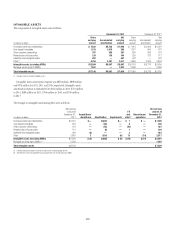 238
238 -
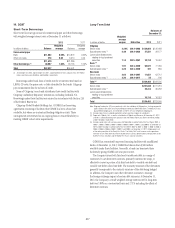 239
239 -
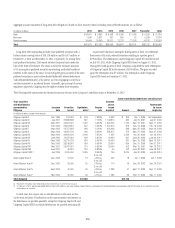 240
240 -
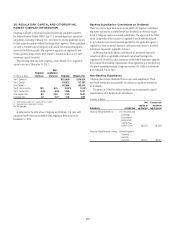 241
241 -
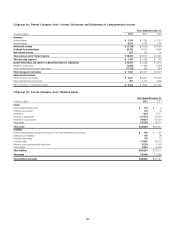 242
242 -
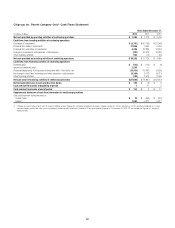 243
243 -
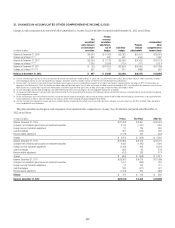 244
244 -
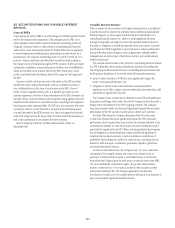 245
245 -
 246
246 -
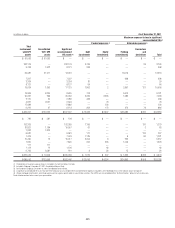 247
247 -
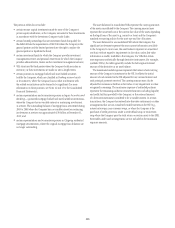 248
248 -
 249
249 -
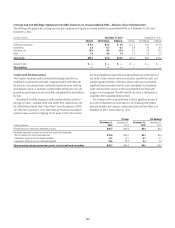 250
250 -
 251
251 -
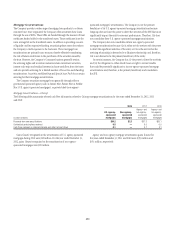 252
252 -
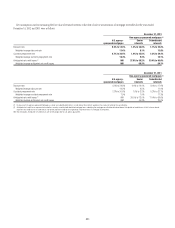 253
253 -
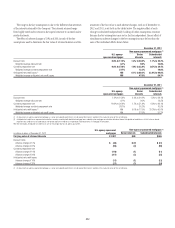 254
254 -
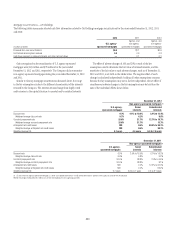 255
255 -
 256
256 -
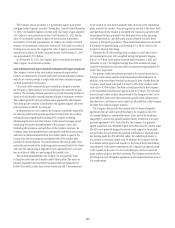 257
257 -
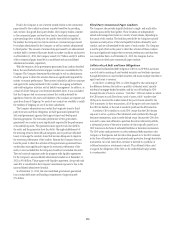 258
258 -
 259
259 -
 260
260 -
 261
261 -
 262
262 -
 263
263 -
 264
264 -
 265
265 -
 266
266 -
 267
267 -
 268
268 -
 269
269 -
 270
270 -
 271
271 -
 272
272 -
 273
273 -
 274
274 -
 275
275 -
 276
276 -
 277
277 -
 278
278 -
 279
279 -
 280
280 -
 281
281 -
 282
282 -
 283
283 -
 284
284 -
 285
285 -
 286
286 -
 287
287 -
 288
288 -
 289
289 -
 290
290 -
 291
291 -
 292
292 -
 293
293 -
 294
294 -
 295
295 -
 296
296 -
 297
297 -
 298
298 -
 299
299 -
 300
300 -
 301
301 -
 302
302 -
 303
303 -
 304
304 -
 305
305 -
 306
306 -
 307
307 -
 308
308 -
 309
309 -
 310
310 -
 311
311 -
 312
312 -
 313
313 -
 314
314 -
 315
315 -
 316
316 -
 317
317 -
 318
318 -
 319
319 -
 320
320 -
 321
321 -
 322
322 -
 323
323 -
 324
324
 |
 |
226
The previous tables do not include:
• certain venture capital investments made by some of the Company’s
private equity subsidiaries, as the Company accounts for these investments
in accordance with the Investment Company Audit Guide;
• certain limited partnerships that are investment funds that qualify for
the deferral from the requirements of ASC 810 where the Company is the
general partner and the limited partners have the right to replace the
general partner or liquidate the funds;
• certain investment funds for which the Company provides investment
management services and personal estate trusts for which the Company
provides administrative, trustee and/or investment management services;
• VIEs structured by third parties where the Company holds securities in
inventory, as these investments are made on arm’s-length terms;
• certain positions in mortgage-backed and asset-backed securities
held by the Company, which are classified as Trading account assets
or Investments, where the Company has no other involvement with
the related securitization entity deemed to be significant (for more
information on these positions, see Notes 14 and 15 to the Consolidated
Financial Statements);
• certain representations and warranties exposures in legacy Securities and
Banking—sponsored mortgage-backed and asset-backed securitizations,
where the Company has no variable interest or continuing involvement
as servicer. The outstanding balance of mortgage loans securitized during
2005 to 2008 where the Company has no variable interest or continuing
involvement as servicer was approximately $19 billion at December 31,
2012; and
• certain representations and warranties exposures in Citigroup residential
mortgage securitizations, where the original mortgage loan balances are
no longer outstanding.
The asset balances for consolidated VIEs represent the carrying amounts
of the assets consolidated by the Company. The carrying amount may
represent the amortized cost or the current fair value of the assets depending
on the legal form of the asset (e.g., security or loan) and the Company’s
standard accounting policies for the asset type and line of business.
The asset balances for unconsolidated VIEs where the Company has
significant involvement represent the most current information available
to the Company. In most cases, the asset balances represent an amortized
cost basis without regard to impairments in fair value, unless fair value
information is readily available to the Company. For VIEs that obtain
asset exposures synthetically through derivative instruments (for example,
synthetic CDOs), the tables generally include the full original notional
amount of the derivative as an asset balance.
The maximum funded exposure represents the balance sheet carrying
amount of the Company’s investment in the VIE. It reflects the initial
amount of cash invested in the VIE adjusted for any accrued interest and
cash principal payments received. The carrying amount may also be
adjusted for increases or declines in fair value or any impairment in value
recognized in earnings. The maximum exposure of unfunded positions
represents the remaining undrawn committed amount, including liquidity
and credit facilities provided by the Company, or the notional amount
of a derivative instrument considered to be a variable interest. In certain
transactions, the Company has entered into derivative instruments or other
arrangements that are not considered variable interests in the VIE (e.g.,
interest rate swaps, cross-currency swaps, or where the Company is the
purchaser of credit protection under a credit default swap or total return
swap where the Company pays the total return on certain assets to the SPE).
Receivables under such arrangements are not included in the maximum
exposure amounts.
